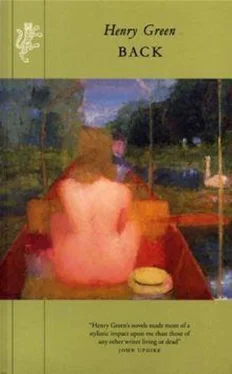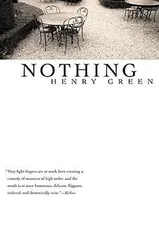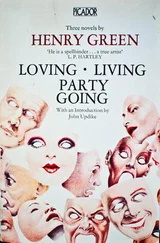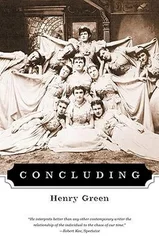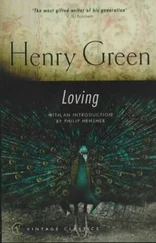“Come here, silly,” was what she replied.
Then he knelt by the bed, having under his eyes the great, the overwhelming sight of the woman he loved, for the first time without her clothes. And because the lamp was lit, the pink shade seemed to spill a light of roses over her in all their summer colours, her hands that lay along her legs were red, her stomach gold, her breasts the colour of cream roses, and her neck white roses for the bride. She had shut her eyes to let him have his fill, but it was too much, for he burst into tears again, he buried his face in her side just below the ribs, and bawled like a child. “Rose,” he called out, not knowing he did so, “Rose.”
“There,” Nancy said, “there,” pressed his head with her hands. His tears wetted her. The salt water ran down between her legs. And she knew what she had taken on. It was no more or less, really, than she had expected.
1 Horizon , 15 (1947), p 75.
2Another favourable critic was Marie Scott-James in Time and Tide , 30 November 1946, p 1161, who praised the book’s “curious and arresting blend of the lyrical and the realistic” and claimed that “no other living novelist has caught the contemporary idiom so well”.
3 Spectator , 29 November 1946, p 590. In the New Statesman , Reyner Heppenstall went further: “Mr. Green’s readers are entitled to sulk …. The hallucinations in Back depend upon two low-grade coincidences, a likeness between half-sisters and the fact that the name Rose occurs in the past tense of a common verb. Out of this confusion arises no unperplexing ecstasy …” (23 November 1946, p 386).
4Henry Green, Pack My Bag , 1940, pp 66–7.
5Elaine Showalter, The Female Malady: Women, Madness and English Culture, 1830–1980 , 1985, p 194.
6 Concluding , Harvill edn. (1997) p 46.
7James Lees-Milne, Fourteen Friends , 1996, p 123.
8Matthew Yorke, ed., Surviving: The Uncollected Writings of Henry Green , 1992, p 115. It seems from a letter to Evelyn Waugh (11 November 1946: Yorke Archive) that Green did not know that the book — written by a M. de Courchamps — was a fabrication.
9Information from Alice Keene.
10Letter to Nancy Mitford, 27 November 1946. Waugh said much the same to Green himself in a letter dated 8 November 1946 (Yorke Archive), but more diplomatically.
11For example Rod Mengham in The Idiom of the Time: The Writings of Henry Green , 1982, pp 173–4.
12Marie Scott-James, for example (see note 2), who said of “the beautiful opening passage which is poetry rather than prose” that “One is reminded of T.S. Eliot by the abrupt transitions from the sublime to the ridiculous and their purpose is the same.”
13Letter from Lehmann to Green dated 5 October 1944, now at Austin, Texas. Lehmann said, though, that the Hogarth Press might have been interested in a book-length translation from the Souvenirs .
14Henry Green to John Lehmann, 6 September 1945. (Harry Ransom Humanities Research Center, Austin, Texas.)
15Henry Green to Rosamond Lehmann, 14 March 1945 (Library of King’s College, Cambridge).
16John Lehmann to Henry Green, 19 September 1945 (Princeton University Library).
17 Paris Review interview reprinted in Surviving (see note 8), p 244.
18See note 5.
19John Russell, Henry Green: Nine novels and an unpacked bag , 1960, p 169.
20Evelyn Waugh to Henry Green, 8 November 1946 (Yorke Archive).
